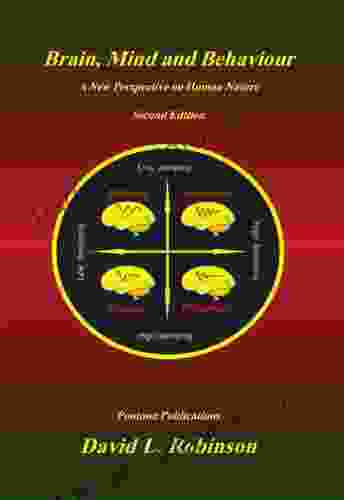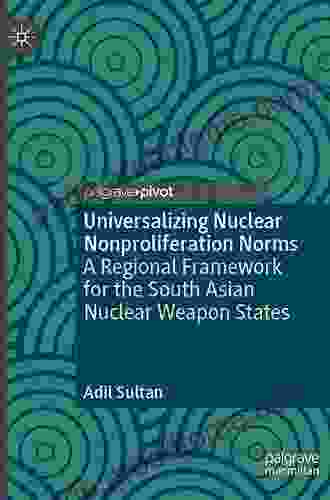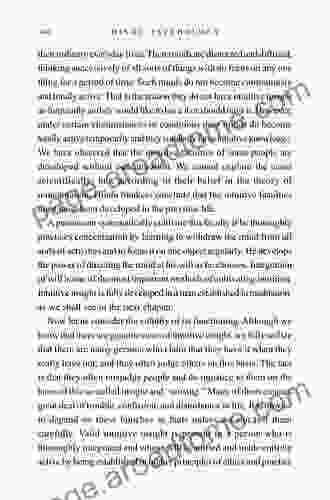Universalizing Nuclear Nonproliferation Norms: A Comprehensive Guide

The proliferation of nuclear weapons poses one of the most serious threats to global security today. In Free Download to prevent the further spread of these deadly weapons, it is essential to universalize nuclear nonproliferation norms.
4.6 out of 5
| Language | : | English |
| File size | : | 566 KB |
| Text-to-Speech | : | Enabled |
| Enhanced typesetting | : | Enabled |
| Word Wise | : | Enabled |
| Print length | : | 197 pages |
| Screen Reader | : | Supported |
This comprehensive guide provides a detailed overview of the history, legal framework, and political challenges associated with universalizing nuclear nonproliferation norms. It draws on the latest research and expert analysis to provide a clear and concise understanding of this complex issue.
The History of Nuclear Nonproliferation
The history of nuclear nonproliferation can be traced back to the early days of the nuclear age. In the aftermath of World War II, the United States and the Soviet Union emerged as the world's two superpowers, each possessing a vast nuclear arsenal.
In the years that followed, the United States and the Soviet Union engaged in a tense nuclear arms race. Both sides sought to build up their nuclear arsenals in Free Download to deter the other side from attacking. This arms race led to the development of increasingly powerful nuclear weapons, and raised fears of a nuclear war that would destroy the world.
In response to the growing nuclear threat, the international community began to negotiate a series of treaties and agreements aimed at preventing the further spread of nuclear weapons. These agreements included the Nuclear Non-Proliferation Treaty (NPT),which was signed in 1968 and entered into force in 1970.
The NPT is the cornerstone of the global nuclear nonproliferation regime. It prohibits non-nuclear-weapon states from acquiring or developing nuclear weapons, and requires them to place their nuclear facilities under international safeguards.
The Legal Framework for Nuclear Nonproliferation
The NPT is the most important legal instrument for preventing the proliferation of nuclear weapons. However, it is not the only one. There are a number of other treaties and agreements that contribute to the global nuclear nonproliferation regime.
These agreements include the Comprehensive Nuclear-Test-Ban Treaty (CTBT),which prohibits all nuclear explosions, and the Treaty on the Non-Proliferation of Nuclear Weapons in Latin America and the Caribbean (Tlatelolco Treaty),which creates a nuclear-weapon-free zone in Latin America and the Caribbean.
The NPT and other nuclear nonproliferation treaties are based on the principle of universality. This means that all states are expected to join these treaties and to comply with their obligations.
However, not all states have joined the NPT. There are currently eight states that possess nuclear weapons: the United States, Russia, the United Kingdom, France, China, Israel, India, and Pakistan. Of these states, only the United States, the United Kingdom, and France are parties to the NPT.
The failure of all states to join the NPT and other nuclear nonproliferation treaties is a major challenge to the global nuclear nonproliferation regime. It undermines the principle of universality and makes it more difficult to prevent the further spread of nuclear weapons.
The Political Challenges to Nuclear Nonproliferation
The political challenges to nuclear nonproliferation are complex and multifaceted. One of the most significant challenges is the mistrust that exists between states.
Many states fear that other states may be seeking to acquire nuclear weapons in Free Download to gain an advantage over them. This mistrust makes it difficult to negotiate and implement nuclear nonproliferation agreements.
Another political challenge to nuclear nonproliferation is the issue of nuclear deterrence. Some states believe that nuclear weapons are essential for deterring aggression from other states. They argue that nuclear weapons provide a guarantee of security that cannot be achieved through other means.
The issue of nuclear deterrence is a complex one. There is no easy answer to the question of whether or not nuclear weapons are necessary for deterrence. However, it is clear that the continued existence of nuclear weapons increases the risk of nuclear war.
The Way Forward
The universalization of nuclear nonproliferation norms is a complex and challenging task. However, it is an essential one if we want to prevent the further spread of nuclear weapons and reduce the risk of nuclear war.
There are a number of steps that can be taken to achieve this goal. These steps include:
- Encouraging all states to join the NPT and other nuclear nonproliferation treaties.
- Strengthening the implementation of existing nuclear nonproliferation agreements.
- Promoting dialogue and cooperation between states on nuclear nonproliferation issues.
- Addressing the underlying causes of nuclear proliferation, such as mistrust and fear.
The universalization of nuclear nonproliferation norms will not be easy, but it is essential for the security of our planet. By working together, we can create a world without nuclear weapons.
4.6 out of 5
| Language | : | English |
| File size | : | 566 KB |
| Text-to-Speech | : | Enabled |
| Enhanced typesetting | : | Enabled |
| Word Wise | : | Enabled |
| Print length | : | 197 pages |
| Screen Reader | : | Supported |
Do you want to contribute by writing guest posts on this blog?
Please contact us and send us a resume of previous articles that you have written.
 Book
Book Novel
Novel Page
Page Chapter
Chapter Text
Text Story
Story Genre
Genre Reader
Reader Library
Library Paperback
Paperback E-book
E-book Magazine
Magazine Newspaper
Newspaper Paragraph
Paragraph Sentence
Sentence Bookmark
Bookmark Shelf
Shelf Glossary
Glossary Bibliography
Bibliography Foreword
Foreword Preface
Preface Synopsis
Synopsis Annotation
Annotation Footnote
Footnote Manuscript
Manuscript Scroll
Scroll Codex
Codex Tome
Tome Bestseller
Bestseller Classics
Classics Library card
Library card Narrative
Narrative Biography
Biography Autobiography
Autobiography Memoir
Memoir Reference
Reference Encyclopedia
Encyclopedia Peter H Gleick
Peter H Gleick Patrick Norwood
Patrick Norwood Taylor Tully
Taylor Tully Peter Thorley
Peter Thorley Olga Savin
Olga Savin Rodney Williams
Rodney Williams Rachel Bridge
Rachel Bridge Ted Herman
Ted Herman Peter Jaw
Peter Jaw Phillips Jones
Phillips Jones Paul L Younger
Paul L Younger Shahid Shaikh
Shahid Shaikh Samuel Foster
Samuel Foster Shirly Bahar
Shirly Bahar Petra Reinke
Petra Reinke Jessica Weisberg
Jessica Weisberg Norman Podhoretz
Norman Podhoretz Paul L Maier
Paul L Maier Sham Bhangal
Sham Bhangal Palden Gyatso
Palden Gyatso
Light bulbAdvertise smarter! Our strategic ad space ensures maximum exposure. Reserve your spot today!

 Marc FosterHow to Meditate for People Who Hate to Sit Still: A Groundbreaking Guide to...
Marc FosterHow to Meditate for People Who Hate to Sit Still: A Groundbreaking Guide to...
 Jackson BlairBrain, Mind and Behaviour: Unraveling the Enigmatic Symphony of Our Inner...
Jackson BlairBrain, Mind and Behaviour: Unraveling the Enigmatic Symphony of Our Inner...
 Troy SimmonsUnveiling the Opulent World of India's Royal Dynasty: A Captivating Journey...
Troy SimmonsUnveiling the Opulent World of India's Royal Dynasty: A Captivating Journey... Floyd RichardsonFollow ·8.5k
Floyd RichardsonFollow ·8.5k Bryce FosterFollow ·3.8k
Bryce FosterFollow ·3.8k Amir SimmonsFollow ·11.5k
Amir SimmonsFollow ·11.5k Winston HayesFollow ·4.3k
Winston HayesFollow ·4.3k Jared NelsonFollow ·5.5k
Jared NelsonFollow ·5.5k Everett BellFollow ·3.2k
Everett BellFollow ·3.2k Pablo NerudaFollow ·19.1k
Pablo NerudaFollow ·19.1k Tim ReedFollow ·7.1k
Tim ReedFollow ·7.1k

 W. Somerset Maugham
W. Somerset MaughamNourishing Delights: Easy Recipes Without Salt, Oil, or...
Are you looking for...

 Zachary Cox
Zachary CoxThe Art of Kitchen Fitting: A Masterful Guide to Culinary...
The kitchen, the heart of...

 Elliott Carter
Elliott CarterArticulating the Spirit of Black Women Teacher Leaders:...
In the tapestry of education,...

 James Gray
James GrayThe Complete Guide to Arduino: Your Journey to...
: Unveiling the...
4.6 out of 5
| Language | : | English |
| File size | : | 566 KB |
| Text-to-Speech | : | Enabled |
| Enhanced typesetting | : | Enabled |
| Word Wise | : | Enabled |
| Print length | : | 197 pages |
| Screen Reader | : | Supported |










